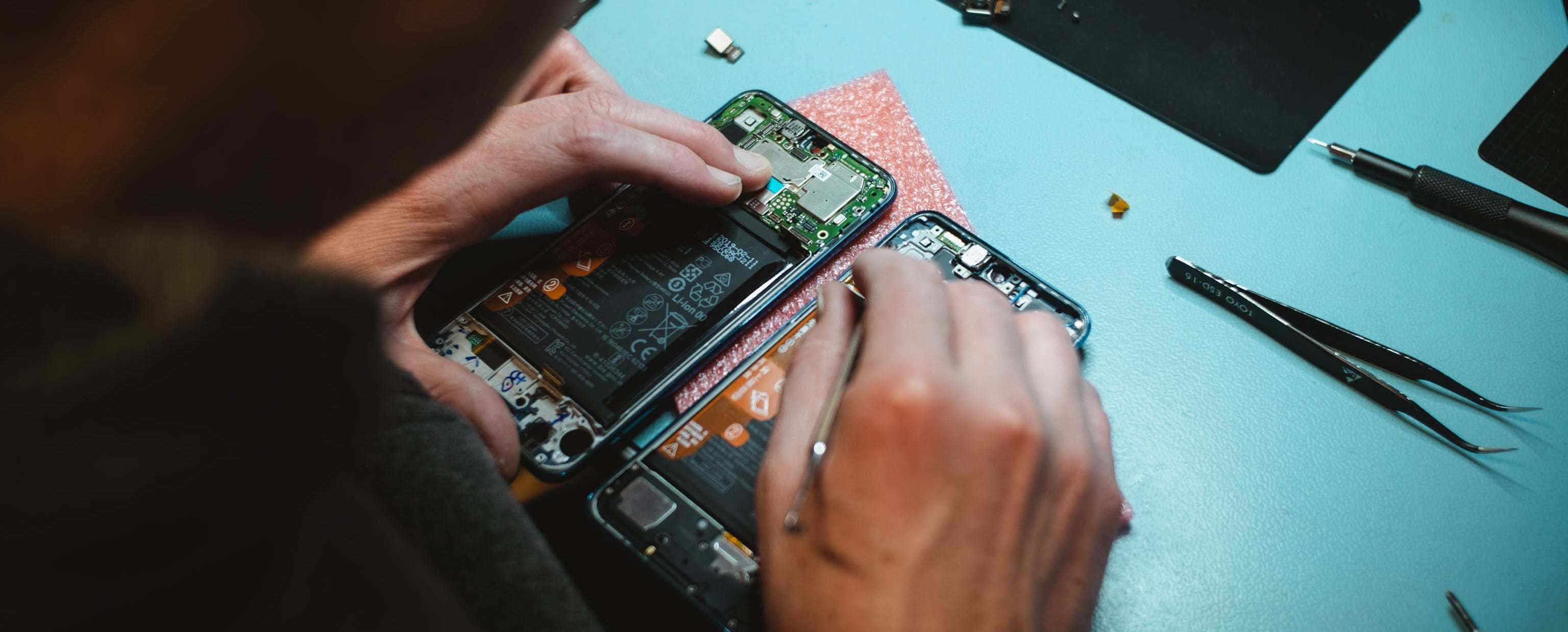Repairing the World - Part 2
Diving deeper on 'repair' — phones, tractors, and capitalism.
Last week I mentioned the world being on fire, and one thing I reflect on to help assuage the burn; how we can repair it. Apparently, the UN agrees with me (about the whole 'on fire' thing, sadly.)
It's helpful to think of what we do in a broader philosophical and moral endeavor to maintain and repair the world around us as we go. A reader (thanks Charlotte!) wrote to remind me of 'tikkun olam' (literally: 'repair of the world'). It's a Hebrew term often interpreted as an aspiration to act constructively.
From Systems to Screws
The lofty aspirations and guiding principles of repair are fantastic and something I carry with me into a lot of my work.
But 'repair' isn't just for the lofty; it's also for the mundane. It's in the policies, practices, and products of our daily lives. And unfortunately, 'repair' isn't just a question of know-how, resourcefulness, and time, and it's bound together with ownership and allowance. In other words...
It's about capitalism, isn't it
Yeah, it's capitalism.
Corporations have an incentive to make things harder or impossible to repair — they'd prefer you buy their newest product (or the same product, multiple times). They do this by using non-repairable components, forcing license agreements, restrictive intellectual property, planned obsolescence, and more.
For example, when you buy a John Deere tractor, you're required to sign an agreement that all the software, data, and communications belong in perpetuity to the company. This, combined with the complexity of John Deere's equipment, has led to pushback from farmers and to the rise of pirated diagnostic and repair tools.
This status quo hurts us in a lot of ways. It prevents obvious repair instances, but it also really hampers in other ways, by limiting sustainable solutions, homemade solutions and "hacks," innovation by inventors and builders who build on initial infrastructure, and more. One of my favorite examples is the Hush-A-Phone Supreme Court case that ruled that AT&T had to allow individuals to use the device on their network. This led to a secondary market for all sorts of attachments and paved the road for an eventual breakup of Bell altogether. Oh, and another excellent example of this is the Internet. Go figure.
Right to Repair
There's a growing movement, Right to Repair, that seeks to provide legal and policy backing for repair and limit restrictive policies (think iFixit as an example organization leading the charge.)
Last year, the White House issued an executive order providing a directive on just this topic, and the FTC further backed it. And it's not just the federal government; there are initiatives in 25 states around Right to Repair. Europe has been leading on Right to Repair laws (the French have even started instituting a repairability index).
This seems like one of those "let's build the world we want to live in" sort of moments. While we might not all be farmers looking to upgrade the sensors on our combines, there might be a lot of downstream consequences to those of us with Raspberry Pis and a robot.
What Else I’m Reading
The Rockefeller University » The human genome is, at long last, complete — This is one of those “the last 20% took 80% of the time” items, and it’s really exciting to see how this will cascade to better understandings about our genetics.
No Amazon? No problem: How a remote island community built its own online shopping service - Rest of World — As someone who, living in DC, 100% takes all of this for granted.
Shopify’s Evolution – Stratechery by Ben Thompson — There is no better person out there thinking about platforms, networks, systems, and economies. His podcasts are a must-listen if you’re into understanding this ecosystem.


